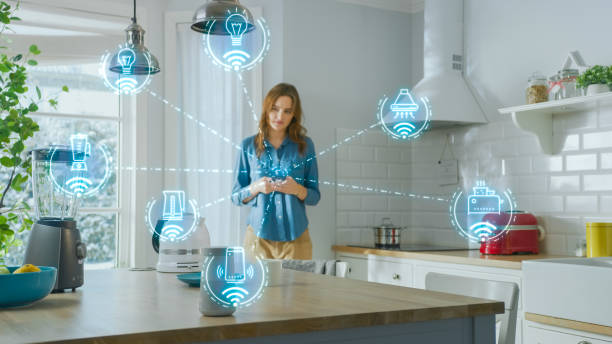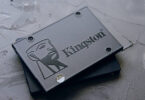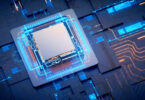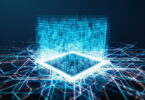IoT devices are smart, connected gadgets equipped with sensors, software, and connectivity features that allow them to interact with each other and exchange data. From smart home appliances to industrial sensors and wearable health trackers, these devices are redefining convenience, efficiency, and connectivity.
In today’s tech landscape, the Internet of Things (IoT) stands as a transformative force, revolutionizing the way devices connect and communicate. As IoT devices become increasingly prevalent, their impact on shaping the future of hardware across industries is undeniable.
Shaping Hardware Innovation
- Interconnectivity: IoT devices form an interconnected network, enabling seamless communication between devices. This connectivity fosters automation, allowing for efficient data sharing and real-time decision-making.
- Enhanced Efficiency: Hardware equipped with IoT capabilities drives efficiency. For instance, in manufacturing, IoT-enabled sensors optimize production processes by monitoring machinery health and predicting maintenance needs, minimizing downtime.
- Data Revolution: IoT devices generate vast amounts of data. This data is a goldmine for businesses, providing insights into consumer behavior, environmental patterns, and operational efficiencies, facilitating data-driven decisions.
- Personalization: From smart thermostats learning temperature preferences to wearable fitness trackers tailoring exercise routines, IoT-driven hardware offers personalized experiences, enhancing user satisfaction.
- Security Challenges: With increased connectivity comes the challenge of cybersecurity. Ensuring robust security measures within such type of devices is critical to safeguard sensitive data and prevent breaches.
Industries Transformed by IoT Hardware
- Healthcare: These devices in healthcare monitor patient vitals, streamline hospital operations, and enable remote patient monitoring, revolutionizing the industry’s approach to care delivery.
- Smart Homes: Connected home devices, from smart speakers to automated lighting and security systems, offer convenience and energy efficiency, transforming daily living experiences.
- Transportation: IoT-equipped vehicles and infrastructure pave the way for autonomous driving, traffic management, and enhanced safety features.
- Retail: IoT-powered inventory management systems, personalized shopping experiences, and supply chain optimization redefine retail operations.
The Future Landscape
The future of hardware is undeniably intertwined with IoT advancements. As technology evolves, expect:
- Further miniaturization and integration of IoT components into diverse hardware.
- Greater emphasis on AI and machine learning to process and derive actionable insights from massive IoT-generated datasets.
- Enhanced interoperability between various IoT devices and ecosystems, fostering a more connected world.
Conclusion
IoT devices represent a pivotal force in shaping the future of hardware. Their ability to connect, collect data, and drive efficiency across industries highlights their transformative potential. However, with this evolution comes the responsibility to address security concerns and ensure ethical and secure use of data.



